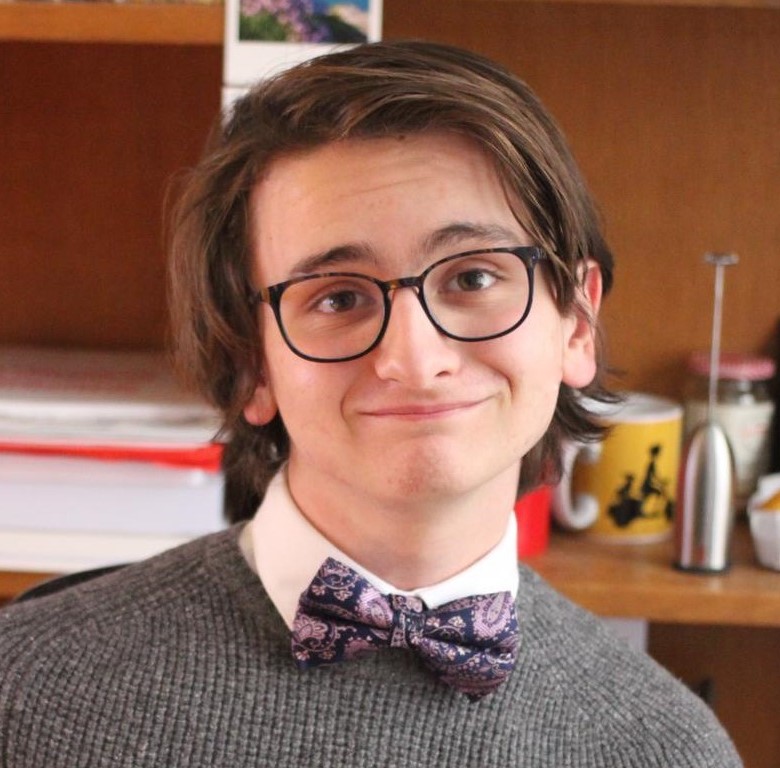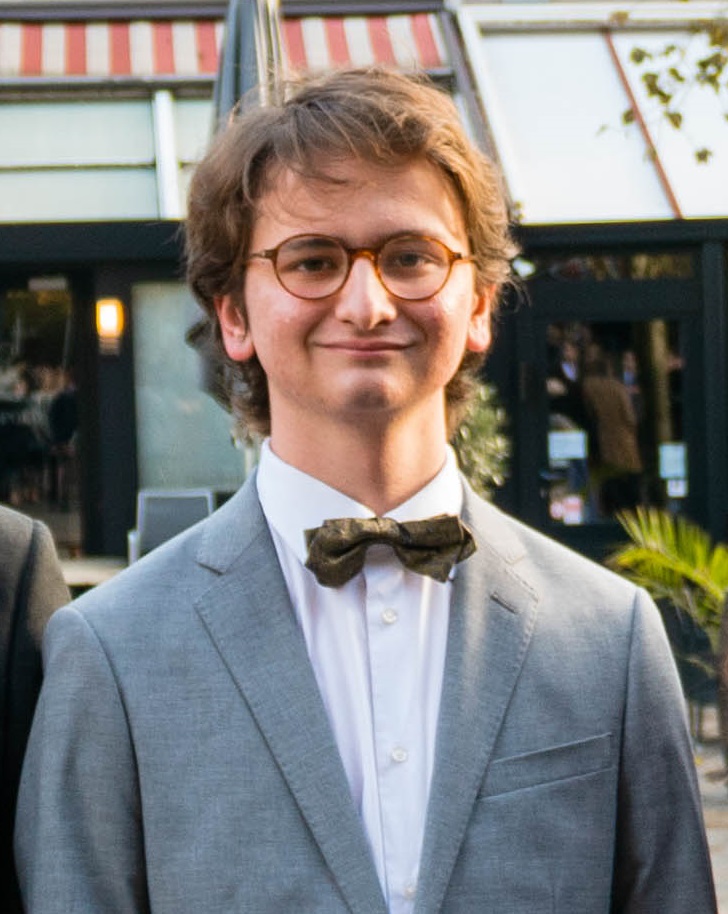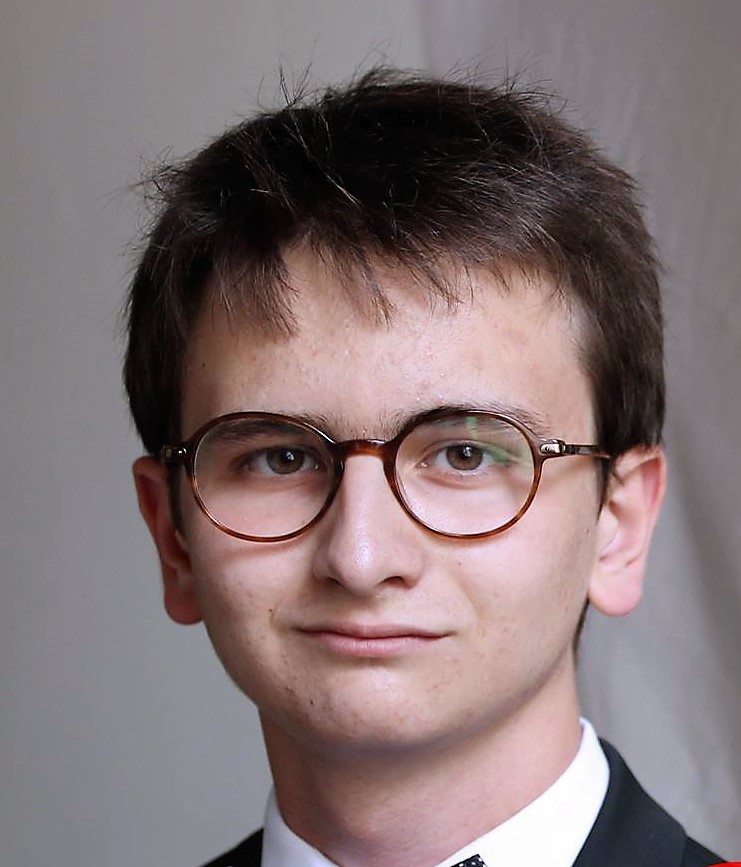Celebrating our Graduates: Pierre Miller
November 15, 2021
by: Munk School Staff
Pierre Miller has never been interested in staying in his comfort zone. “I like to give myself challenges,” he says, reflecting in the weeks before his online convocation. On November 18, Miller will graduate from the dual Master of Public Policy/Master of Global Affairs (MPP/MGA) degree program between Sciences Po and the Munk School.
Before joining the program, Miller earned a dual bachelor’s degree in Political Science and Physics from Sciences Po and Sorbonne University in Paris, an unlikely academic combination that highlighted the benefits of learning across different disciplines. As a requirement for his program, Miller spent the third year of his undergrad on exchange at Johns Hopkins University in Baltimore, Maryland. It was an experience that that made him consider pursuing a graduate degree abroad. “Johns Hopkins was an amazing time for me. I really liked the U.S., but I wanted to see another part of the American continent. I wanted to be able to make a connection between public affairs and global affairs,” says Miller. “I chose the dual degree with the Munk School because I wanted to understand the transatlantic perspective. Historically, Europe is very old. We have a very different understanding of public affairs and how policies are undertaken. In North America, Canada and the U.S. are relatively young countries and things are not framed the same way. It’s fascinating to see the difference in the two continents and cultures.”

During his time in the dual degree program, Miller had the chance to learn more about both continents and cultures both in and out of the classroom. Remotely from Paris, Miller took advantage of jobs and extra-curricular opportunities at both schools, including joining the yearbook team at Sciences Po and becoming a feature contributor for Global Conversations, an online media platform run entirely by MGA and MPP students at the Munk School. And, after his first year in MPP/MGA program, Miller took a summer internship with the United Nations Educational, Scientific and Cultural Organization (UNESCO), an experience that led him to take an interest in inclusive innovation. He worked remotely from France for UNESCO’s New Delhi office, where he took on projects that were at the crossroads of innovation, development, grassroots organizing, and youth empowerment. In the office’s Social and Human Sciences Department, Miller worked on projects pertaining to gender equality, sports, and youth empowerment in India and neighboring South Asian countries. “It was an amazing experience. I got to see the reality of work in the field. Working for a big organization like UNESCO sometimes means focusing only on big administrative things. However, through working with the New Delhi office, I got to understand the work from a local, grassroots perspective.”
Miller’s time at UNESCO served as an excellent introduction to innovation and inclusive policymaking. He explored this interest further in his capstone project, a culminating assignment that MPP/MGA students work on in their second year of study. Under the supervision of Shiri Breznitz, director of the MGA program, Miller and his team consulted the provincial Ministry of Economic Development, Job Creation, and Trade (MEDJCT) on their pandemic recovery plan for Ontario. Specifically, they looked at how innovation could be used to fuel inclusive growth. “The province wanted to know more about how to make Ontario more prosperous and not leave anyone behind. They left us in charge of preparing a short report that would outline Ontario’s strengths and weaknesses and propose a pandemic recovery action plan based on that.”

Using Canada’s federal Inclusive Innovation Monitor (developed by the Munk School’s Innovation Policy Lab and the Brookfield Institute for Innovation + Entrepreneurship) as a guide for data collection, Miller and his teammates looked at how well (or poorly) Ontario was doing in three key areas. They established that in order to foster inclusive innovation, Ontario needed to first empower residents to engage with it through education. Ontarians then needed to be able to work in the field — they needed supports in place to either help them get jobs in innovation or create their own jobs by starting their own businesses. Finally, the province needed to look at who benefits from innovation. Are there wage gaps in the field? Are there barriers to access or disparities between men, women, Indigenous or other groups? According to Miller’s team, improvement in these three areas is imperative to ensuring that economic growth in a post-COVID world is equitable for all. “There are different levels to inclusive innovation. Economic development is not only about growth. It’s about making sure people have a better quality of life in the end,” says Miller.
That principle informed his capstone project. For instance, based on the data his team analyzed, one of the recommendations in their proposed policy action plan was for Ontario to host a tech summit that would be free for women and people of colour. Miller says coming up with concrete actions like this is part of what made his experience at the Munk School so valuable. “The capstones are a really nice way to connect with actual professionals in Canada and work on real case studies,” he says. “Having such a focus on innovation policy was refreshing. It was an amazing experience.”
Miller’s interest in innovation policy began in the MPP/MGA program, but it doesn’t end there. After convocation, he plans to continue his education at the College of Europe in Belgium, where he will study innovation, policy design and European affairs. His goal is to help develop innovation policy that includes and benefits everyone, instead of economic strategy that focuses on growth for growth’s sake. “If innovation doesn’t benefit people, then what’s the point of supporting innovation policy?” Miller asks. “Innovation is supposed to make the world a better place.”

The University of Toronto’s Fall 2021 Virtual Convocation Ceremony airs on November 18 at 12 p.m. ET. Visit utoronto.ca/convocation for more information on how to tune in and celebrate!

